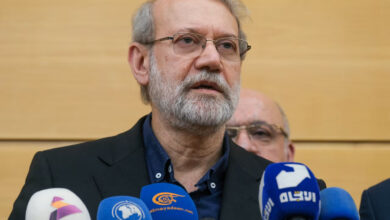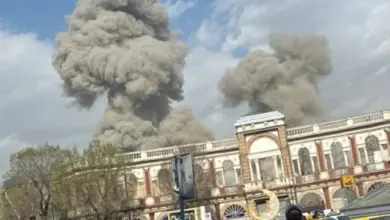Egypt’s flagship paper Al-Ahram has been brave enough to highlight the recent Israeli political turmoil, in which hundreds of thousands of protesters have staged marches over the rising cost of living.
The paper runs a story on its front page that reads: “They raised the slogan ‘as the Egyptians did’: A quarter of a million Israelis protest demanding social justice.”
Al-Ahram’s coverage of the Israeli demands is a rare phenomenon because almost all the dailies have turned a blind eye toward the neighboring country.
The paper says that due to the unprecedented wave of protests in decades, along with the US credit downgrading, Israel's stock market on Sunday dropped 6.99 percent.
Similarly, privately owned Al-Tahrir covers the political development in Israel, highlighting what it perceives as the Egyptian impact on Israeli protesters. The paper says that demonstrators carried banners that read “Leave, here is Egypt” in both Arabic and Hebrew.
Mohamed Atiya, who wrote the report, reacts to Israelis borrowing slogans from Egyptians by saying: “The Israeli protesters have proved the capability of Egyptians to teach the revolution to everybody, even their enemies.”
Atiya – writing seriously – says the Israeli government borrowed some tactics of the “Arab tyrants” to confront the dissent.
Atiya means the statement made by Dan Meridor, Israel's deputy prime minister and minister of intelligence and atomic energy, in which he said to the Israeli Radio that the government understood the message. On 12 January, ousted Tunisian president told his people, angry from his iron rule, “I have understood you.”
The internal scene
Privately owned Al-Shorouk runs its major story for the planned million-man march in Cairo next Friday, which is dubbed “For the Love of Egypt."
Organizing such events in Tahrir Square is not easy since the army forcibly ended the sit-in on 1 August, the first day of Ramadan.
Since then, the iconic square has been a military base where hundreds of soldiers, along with the police’s Central Security Forces, are on alert to violently disperse any gathering in the square.
On Saturday, the army cracked down on small gatherings of people having their iftar meals in the square.
The paper says that 42 political parties, civil movements and Sufi movements announced they would return to Tahrir.
Observers say that that Sufis joined revolutionary groups in calling for the Friday protest as means to voice opposition to the protest staged on 29 July by hardliner Salafis.
Al-Shorouk adds that the movements calling for the march on Friday will hold a press conference today (Monday) to announce the details of the expected march.
An anonymous security source told the paper that there is no need for organizing such marches and the police are ready to apply the law against anyone who would block the traffic.
Privately owned Al-Dostour, however, highlights the divisions between the movements calling for Friday’s march.
The paper says that some Sufi imams rejected the idea of conducting massive marches on Friday, saying that it would lead to divisions among Egyptians.
Moreover, Al-Ahram says that some Sufi movements are debating the possibility of organizing the march in a place far from Tahrir in order not to block the square.
Amusingly, Al-Tahrir sees the planned million-man march as an opportunity to see the biggest bean-cooking pot in the world.
The paper said the march will last until iftar – the evening meal during Ramadan – when it will be the biggest collective iftar gathering.
Spending so much coverage on the political debate in the nation has obviously pulled the rug from under the various negative developments in the Arab region, especially the atrocities in Syria.
Coverage about the Syrian regime's bloody crackdown on its people at best lurks in the inside pages of Egypt's papers.
State-run Al-Akhbar has a small headline in its first page that reads: “At last he has spoken.” The paper refers to Nabil al-Araby, secretary general of the Arab League, who has been silent in commenting about the bloodshed in Syria.
On page 15, the paper quoted a statement made by Araby in which he expressed “growing concern and strong distress over the deteriorating security conditions in Syria due to escalating violence and military operations in Hama, Deir al-Zor and other areas of Syria."
According to the paper, Araby, who took office in May, said he refuses any external interference in Syrian affairs.
Egypt's papers:
Al-Ahram: Daily, state-run, largest distribution in Egypt
Al-Akhbar: Daily, state-run, second to Al-Ahram in institutional size
Al-Gomhurriya: Daily, state-run
Rose al-Youssef: Daily, state-run
Al-Dostour: Daily, privately owned
Al-Shorouk: Daily, privately owned
Al-Wafd: Daily, published by the liberal Wafd Party
Al-Arabi: Weekly, published by the Arab Nasserist party
Youm7: Weekly, privately owned




